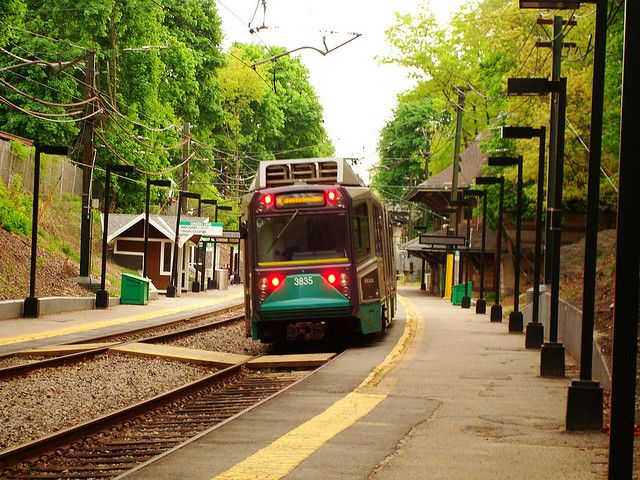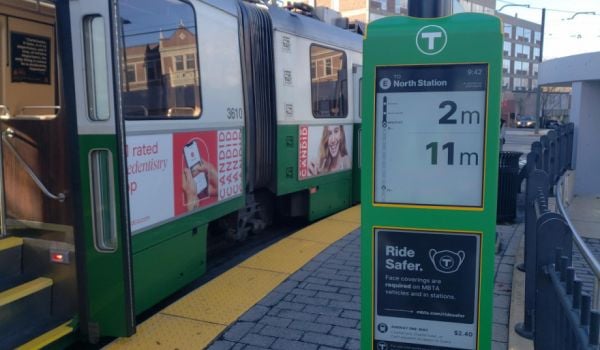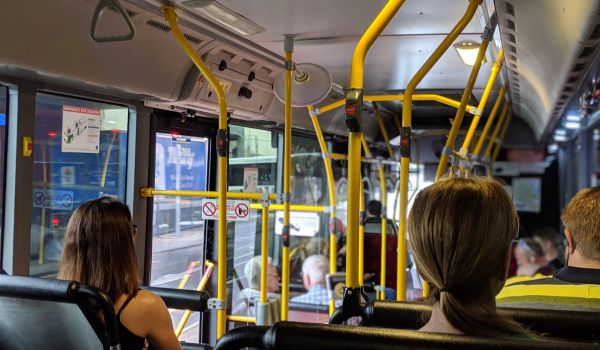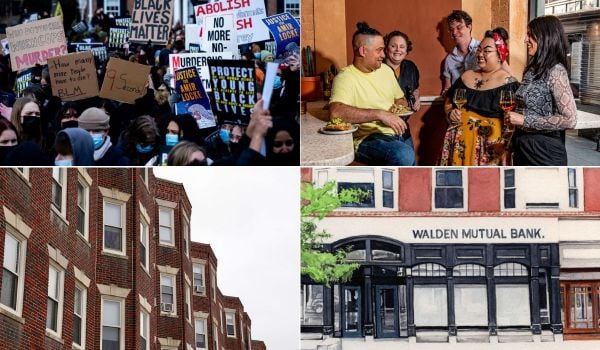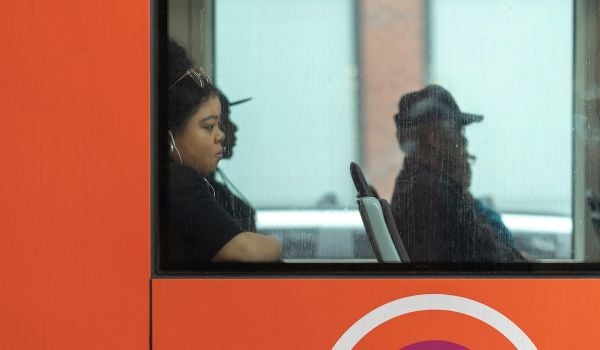This is the final installment of a 3-part series.
- Part 1: “Deprivation Study Finds Access to Real-Time Mobile Information Could Raise the Status of Public Transit”
- Part 2: “Latitude Transit Study Results: Part Two”
- Download the full report summary (PDF) here
A few months ago, Latitude Research (in collaboration with Next American City), asked regular drivers in Boston and San Francisco to go car-free for one week and to rely on other forms of transit instead. Participants shared their experiences and ideas for improvement, suggesting opportunities to redesign the experience of going car-free (e.g. not owning a car) so that it’s more convenient, personalized and enjoyable—largely through the help of mobile information technologies. Key opportunity areas include:
- Apps that enable aspirations
- Collaborations between “competing” entities
- Better integrations of transit with other local information

Photo by Jennifer R., San Francisco study participant.
- Apps that enable aspirations: make it easy to be good. Bixi is a bike-sharing system piloted in Montreal that’s been so successful other cities worldwide are beginning to adopt it. It’s flourished because of its ease of use, accessibility, and information transparency (not to mention low price point and high product quality). Users can return their bikes to any docking station, which are never more than 1,000 feet apart in the city. Bixi offers a smartphone app that tells users locations of the closest docking stations and the number of bikes and docks available there. Thanks in large part to real-time, mobile information, Bixi makes it easy for people to access bikes without pre-planning and without regard to their specific location.

Screenshot from bixi.com
Study participants felt that there were a number of inherent benefits to driving less, many of which aligned with their own personal goals—perks like good exercise, reducing one’s carbon footprint, feeling more immersed in their communities, or having more time to read or relax. People want to make choices that are good for themselves and for the environment (typically, the more incremental or low commitment, the better), and the hurdle to doing so is often just a matter of having the right information at the moment a decision is being made. This a clear opportunity space for mobile to fill; businesses can now offer people the opportunity to engage new identities, experiences, and values at little to no commitment or cost—by offering them the information they need to make these decisions in real-time. Accordingly, participants suggested apps that would help plan their routes easily and efficiently, but would also track progress toward their goals in terms of fitness achievements and positive environmental impact. Relatedly, there may be a role for apps with game elements that tap into people’s deeper, intrinsic motivations like doing good for society (e.g., a points system to track small sustainable choices tied to an online local leaderboard with the highest-scoring citizens).
Participant app recommendation: “I’d want to see a Web site or app that allows you to compare options for getting to different places, and maybe adds information like carbon emissions, calories burned, and so on, for each option. If you have a lot of places to go, it could also offer to ‘plot your route,’ which would offer the most time-efficient way to do it.” —Keren S., Boston study participant
- Collaborations between “competing” entities. “The future of transportation will be a blend of things like Zipcar, public transportation, and private car ownership,” predicted Bill Ford, Ford’s executive chairman, in a 2009 CNN interview. (On average, study participants used 5 different modes of transit during the car-free week.) Cars are becoming, more and more, just one of the attractive options for transit, and companies are recognizing the need to engage people in a way that empowers choice. One clear way to do this is through improved information access. Study participants requested mobile apps with more holistic information to help them make decisions: one-stop information shops with the complete range of transit options (buses, trains, bike-sharing, car-sharing, etc.), including information from competitive providers.
Government and private-sector entities should welcome the opportunity to collaborate on these kinds of choice-enabling, mobile information tools (e.g., apps) which allow users to choose among multiple options by comparing schedules, cost, availability, and convenience. The end-goal should be to create a more comprehensive information resource so that users can choose to adopt a particular service only some of the time, when it makes sense for them. “Readily accessible information, thanks largely to mobile, is becoming the great democratizer of products and services,” explains Neela Sakaria, SVP of Latitude. “People no longer need to consider themselves singularly as a ‘car person’ or ‘health nut,’ but rather as an individual with complex, changing, and even contradictory needs. This challenges businesses to offer new levels of transparency and to consider partnering with competitors. The result is an opportunity to engender a new and deeper, if decentralized, form of brand loyalty.”
Participant app recommendation: “I’d like a ‘how-to-get-there-using-alt-
- Better integrations of transit with other local information. Study participants indicated that they wanted to increase their awareness of what’s around them—community events, local businesses, promotions, and so on—with the help of real-time, mobile information. During the car-free week, they discovered new local haunts and shops by taking different routes, and more than two-thirds even changed their shopping habits. They suggested apps that would more closely tie their routes (or possible routes) to other places of interest, signaling that transit providers should partner with local businesses to increase engagement with both parties. There’s a significant opportunity to transform transit into positive experiences that are about more than just getting from Point A to Point B: experiences of spontaneous discovery, community involvement and belongingness, and so on.

Photos by Mark V., San Francisco study participant. Clockwise from top left: “Civic Center Muni,” “Seagulls on Statues,” “Lively Nighttime Scenes”
Participant app recommendation: “A really simple phone app that would tell you the fastest way to your destination using any and all public transportation options. If there are any special events (arts, music, food), special deals (shopping sales, coupons, happy hours) along the route, the app could tell you.” —Mark V., San Francisco study participant
Participant app recommendation: “I would create some type of app that would allow all of us to better navigate by including trip planning with platform elevators and other ‘handicapped’ access, but also where the nearest bathrooms are located, where you could stop and take a brief rest if necessary (benches, indoor mall food-courts, etc), where you could recharge a phone or plug in a laptop, or partake in other services that would allow you to reinvigorate yourself or your technology… for free.” —Elissa K., Boston study participant
Download the full study report here.
Study lead: Marina Miloslavsky
Latitude is an international research consultancy exploring how new information and communications technologies can enhance human experiences. Amidst a landscape of profound technological change, they consistently deliver next-generation insights and assist organizations in discovering and developing new opportunities. To learn more about working with Latitude, contact Brian Conry (bconry@latd.com). For press inquiries, contact Kim Gaskins (kgaskins@latd.com).

